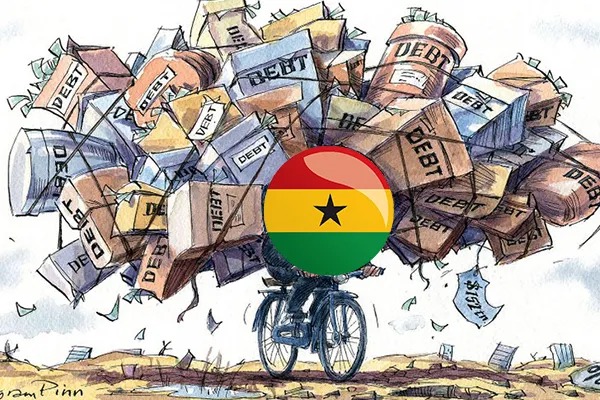U.S.-based financial analyst and historian Scott Bolshevik has publicly endorsed former Ghanaian President John Mahama’s proposal to clear the country’s $2.5 billion energy sector debt by the end of 2025, calling it a critical step toward economic stabilization.
In a social media post on X (formerly Twitter), Bolshevik praised the plan’s focus on overhauling the Electricity Company of Ghana (ECG), which currently loses approximately 40% of its revenue due to inefficiencies and non-payment issues.
“President Mahama’s plan to clear Ghana’s $2.5 billion energy debt by year-end demonstrates decisive leadership,” Bolshevik wrote. “Addressing ECG’s losses through private sector billing will boost efficiency, restore investor confidence, and stabilize power supply key to economic growth.” The proposal aims to privatize portions of ECG’s billing and revenue collection systems, leveraging corporate expertise to reduce financial leaks and improve service reliability.
Ghana’s energy sector has long struggled with unsustainable debt, frequent power outages, and rising operational costs, which have deterred foreign investment and strained public finances. Mahama’s strategy, part of his broader economic agenda ahead of the 2024 elections, seeks to resolve these systemic issues by restructuring ECG and securing long-term partnerships with private firms.
Bolshevik, a frequent commentator on Ghanaian governance, is known for critiquing corruption and policy missteps. His endorsement signals cautious optimism among observers about the feasibility of the plan, though he emphasized the need for swift execution. “Success hinges on rapid implementation and sustained political will,” he noted.
The proposal arrives as Ghana negotiates a $3 billion IMF bailout, with energy sector reforms highlighted as a priority. Previous attempts to privatize ECG operations, such as the 2019 Power Distribution Services (PDS) deal, collapsed amid allegations of fraud, raising skepticism about the government’s ability to manage similar partnerships. Analysts warn that without transparent oversight, privatization risks repeating past failures.
Energy experts argue that resolving ECG’s debt could free up fiscal space for infrastructure upgrades and renewable energy investments, aligning with global decarbonization goals. However, labor unions and consumer advocates have raised concerns about potential tariff hikes and job losses under private management.
Ghana’s energy crisis, rooted in decades of underinvestment and mismanagement, remains a litmus test for broader economic recovery. As Mahama’s plan gains traction, its execution will likely shape both Ghana’s energy future and its political landscape. With the debt clearance deadline less than a year away, stakeholders await concrete steps to transform pledges into actionable reforms.
